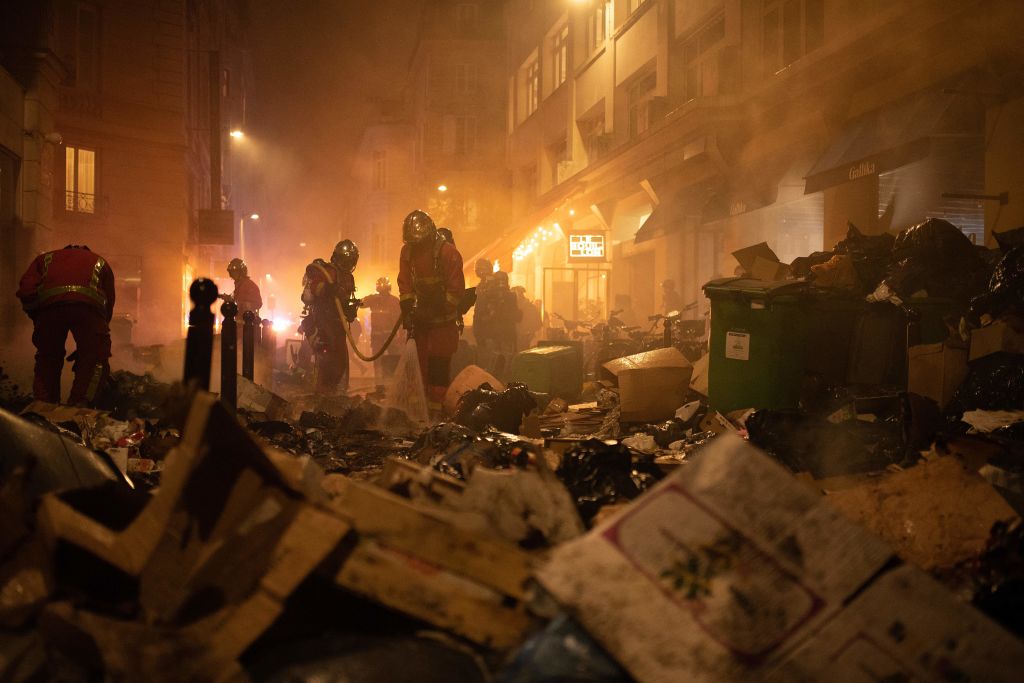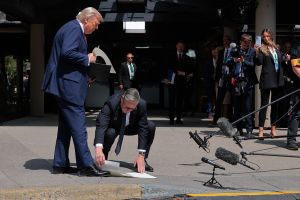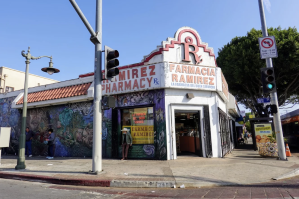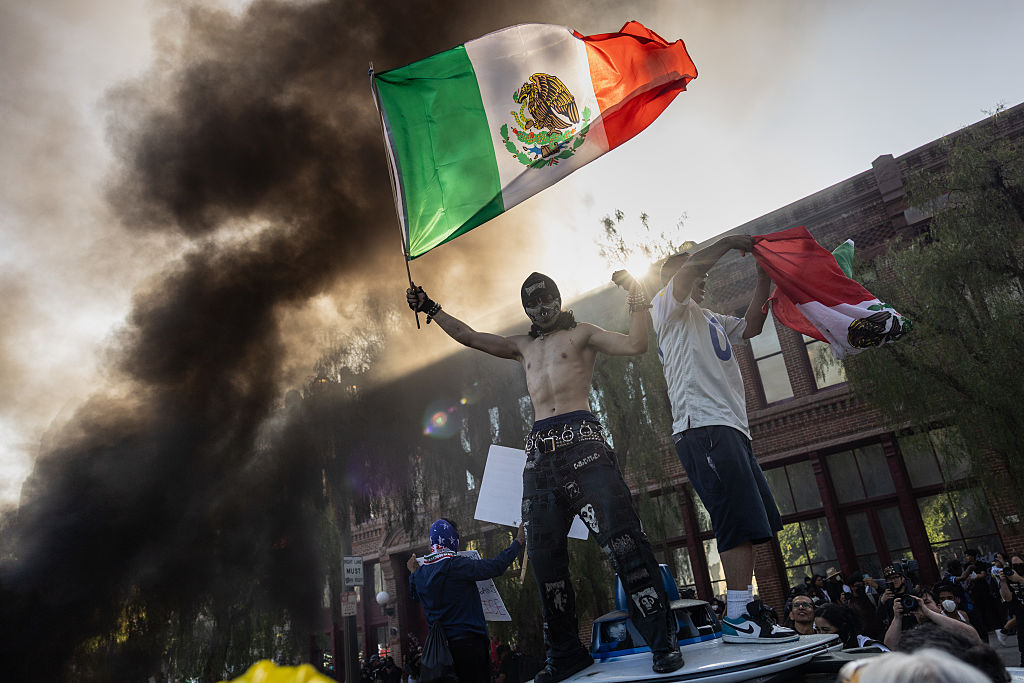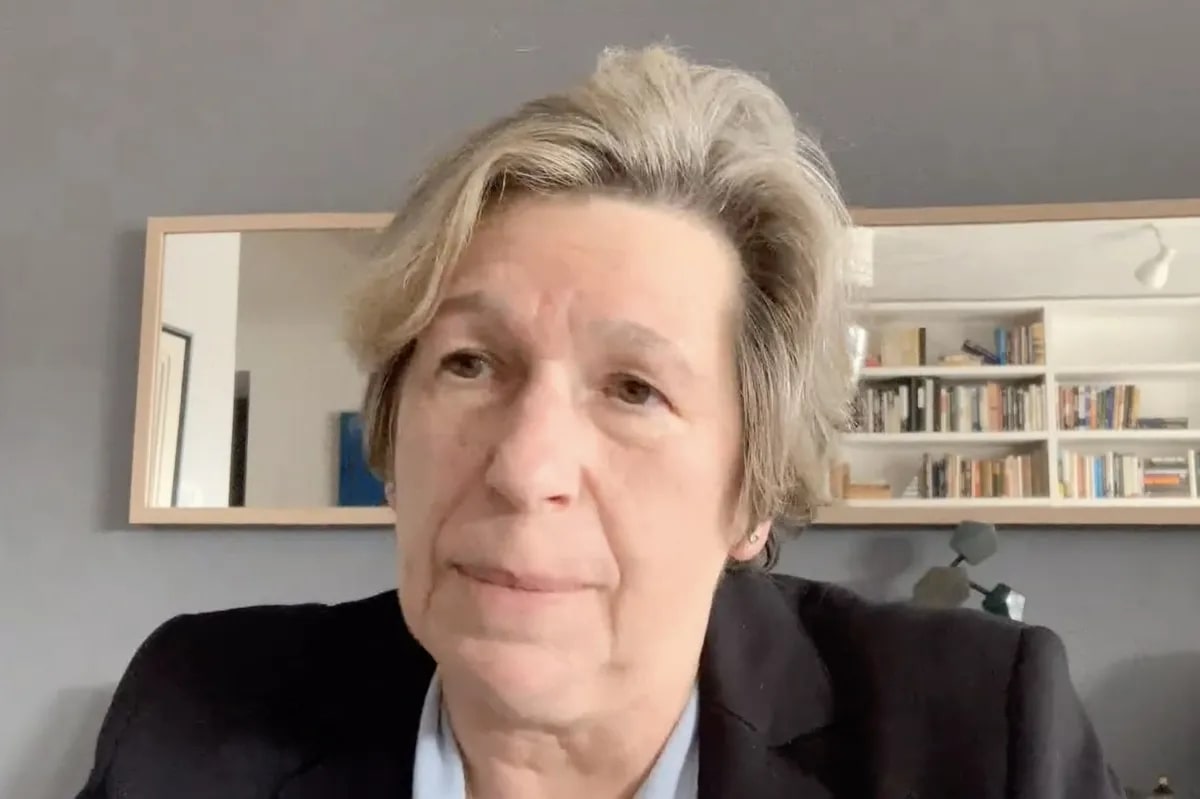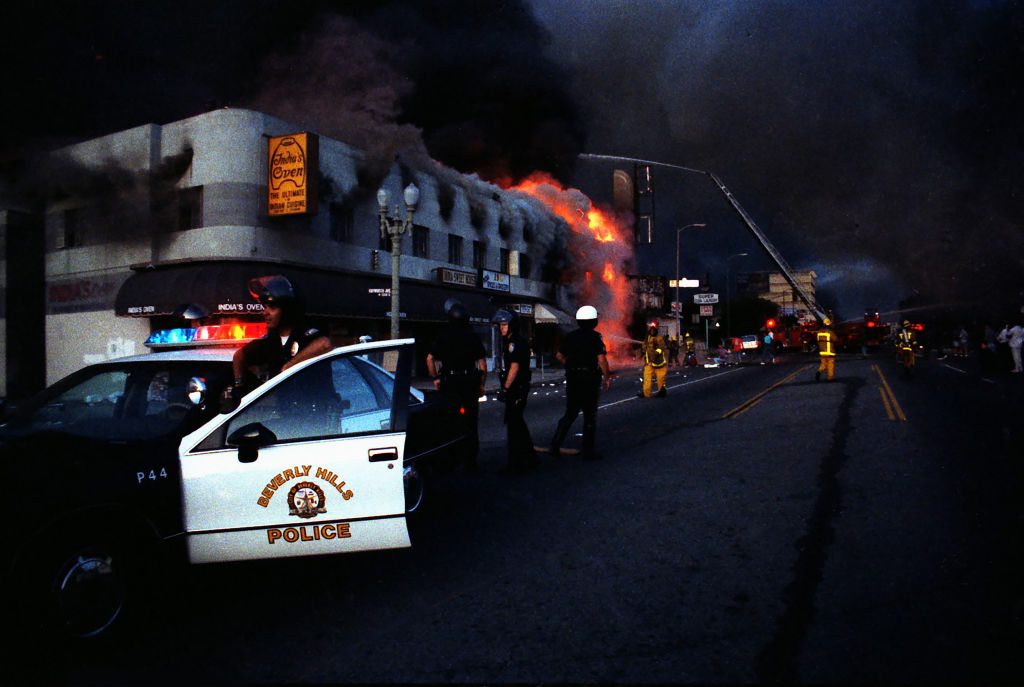Thursday was a day of anarchy in France — and the protests overnight have led to King Charles’s state visit to France, which was due to start this weekend, being canceled. The King had been due to visit Paris and Bordeaux, two of the cities hit by the most extreme violence. In Bordeaux, a town hall was sacked. In Lorient, a police station was attacked — and in Nantes a court was vandalized. The worst of the violence was in Paris. Hundreds of thugs clad in black fought running battles with police, 149 of whom were injured, and they also smashed and looted shops, banks and restaurants. Gérald Darmanin, the interior minister, attributed the violence to far-left extremists to whom he addressed a message on Thursday evening: “I want to tell them that we are extremely determined, that violence will not succeed.”
That is a challenge likely to be accepted by the extremists, an estimated 1,500 of whom were in Paris on Thursday. Unlike the hundreds of thousands of peaceful demonstrators who walked through the capital making known their opposition to President Macron’s pension reform bill, the far-left extremists were there — in Darmanin’s view — “to smash the police and smash public buildings.”
The next organized day of protest is on Tuesday, although it would be a surprise if there is not further trouble at the weekend, particularly in the evenings, when the thugs take to the street. The police officers of Paris have not had a quiet night since the government used a controversial measure to pass their pension reform bill eight days ago.
The people are angry, and they’ve taken it out on the police, injuring more than 350 in total. Fortunately for Macron his “thin blue line” has been bolstered in recent years, a consequence of the violence that characterized the Yellow Vest protests of 2018/19. A recruitment drive was launched last year, new armored vehicles were acquired and an elite unit was formed in 2021, specialized in urban warfare. Some of the police give as good as they get; a clip has been doing the rounds this week in which a policeman is seen punching a protester unconscious.
The officer allegedly responsible for throwing punch was a member of “Brav-M,” a motorized rapid response unit established in 2019 to deal more effectively with mob violence. On Wednesday three MPs of the far-left La France Insoumise, or LFI, wrote to Darmanin demanding the “dismantling” of Brav-M.
The demand was ignored. From the start of the protests in January, Darmanin has accused elements of the left of attempting to “bordéliser” France: in other words encouraging anarchy by the use of inflammatory rhetoric.
The leader of the LFI, Jean-Luc Mélenchon, appears to harbor a particular animus towards the police. Last year he tweeted that the “police kill,” accusing them of abusing their power after they shot dead a passenger in a car that had refused to stop at a vehicle checkpoint.
Left-wing politicians in France know that the majority of police vote for Marine Le Pen’s National Rally, but their resentment dates back decades.
The specialist CRS police unit, which has been prominent in Paris this week, was raised in December 1944 to protect the Republic against the possibility of a Communist insurrection. In 1948 they were deployed as strike-breakers against miners, a confrontation that left several protesters dead.
A chant was born in that period: “CRS = SS,” likening the police unit to the elite Nazi corps. It has passed from generation to generation, from the student uprising of May 1968 to the Yellow Vest protests of 2018.
Last year, a survey in France reported that 50 percent of people had confidence in the police. This half of the country will be appalled by the violence they are watching on the television screens. Their sympathy is not with the protesters punched to the ground or arbitrarily arrested but with the police who they regard as all that stand between the Republic and revolution.
France is suffering record levels of violent crime and this half of France would rather have a police force that acts robustly than one that cedes ground. As the head of a police union put it in 2021: “The police adapt to their public. If nobody is violent, we are not violent.”
The more intelligent left-wing MPs believe that the violence plays into the president’s hands. “The more chaos there is in the country, the more it suits him,” said François Ruffin on Wednesday. “He will present himself as the guarantor of order.”
Macron did that on Wednesday in a television interview when he finally addressed the protests and their cause. There was a reason why he chose the broadcast to air at 1 p.m. instead of the evening. Who watches the lunchtime news? The retired, Macron’s key demographic, the age-group that was crucial in returning him to power last year.
We live in troubled times, the president admitted, and people are right to be worried. They also have a right to protest, he added, but warned that “he will tolerate no extreme behavior.” This includes the blocking of oil refineries and other industrial action aimed, in the words of one far-left union, to “bring the economy to its knees.”
Macron will not back down. He can’t, not now. It would be seen as caving into the mob and his reputation would never recover, at home or, more importantly for him, abroad.
The longer the violence lasts and the more disruptive the strikes become, the greater the opportunity for Macron to play his favoured role as the people’s protector. Islamist terrorists, Yellow Vests and now far-left extremists, the message from Macron is always the same: rest easy, I will maintain the Republican Order.
But beneath Macron’s defiant exterior there will be a nagging worry: that the disorder is contagious, spreading from the minority of violent extremists to the majority of peaceful demonstrators. These are the ordinary men and women who have reached the end of their tether with the cost of living crisis. By instinct many will be pro-police but they are in the street because they are anti-Macron.
How far are they prepared to go to convey the anger and injustice they feel? That is a question not even the cocksure Macron can answer.
This article was originally published on The Spectator’s UK website.



